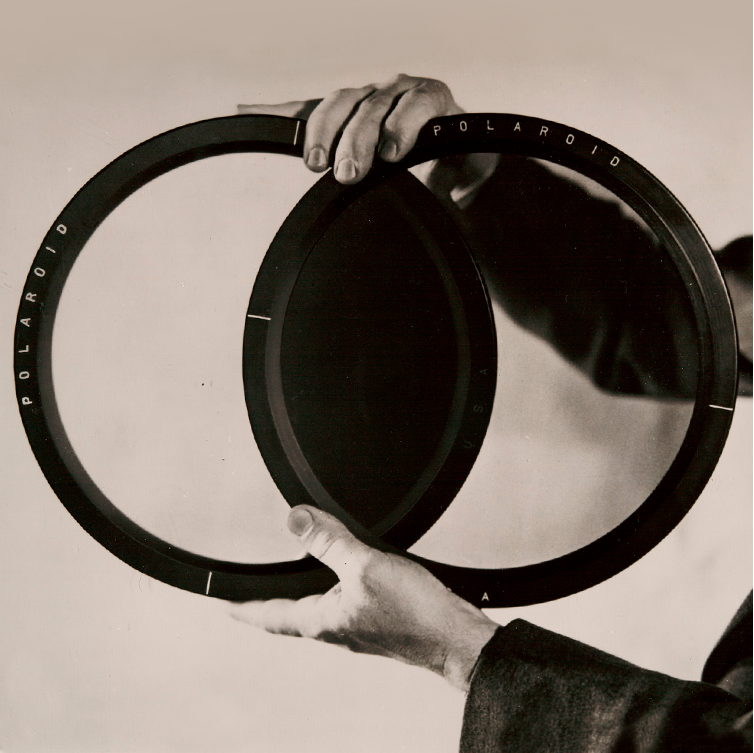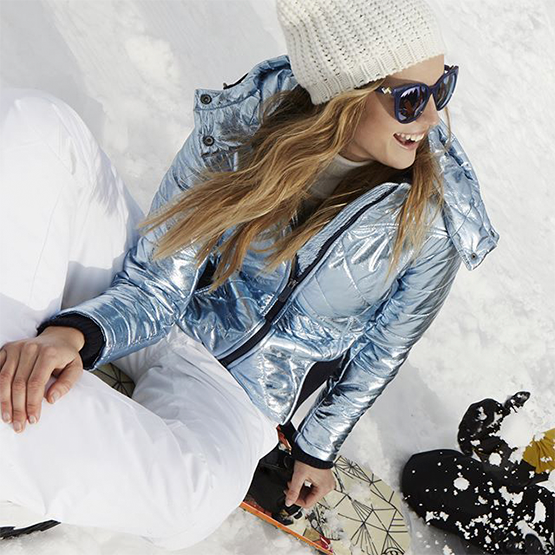Polarized lenses: Great for winter
It’s important to protect your eyes from the sun in summer and winter. Even if there are fewer hours of sunshine during wintertime, the sun’s rays, reflected by the snow, have a greater impact on our eyes.
Ultraviolet radiation
A lot of UV radiation is absorbed by the ground, but some surfaces reflect it intensely. These include sand, water, grass, snow and materials like glass and metal. Exposing your eyes to UV rays can cause photokeratitis (sunburn on the cornea) and other more serious long-term conditions like cataracts, age-related macular degeneration, cancer of the eyelid and more. The harmful effects of UV rays on the eye are cumulative and irreversible. That’s why it’s always important to wear sun protection outdoors in summer and winter.
What polarized lenses do
In addition to providing protection from the sun, polarized lenses eliminate glare and improve vision. When light reflects off a shiny surface, it is mainly projected vertically and horizontally. Vertical light provides useful information to the human eye, allowing us to discern colour and contrast. Horizontal light, on the other hand, creates disturbances, called noise. Non-polarized lenses simply make objects look darker, but polarized sunglasses filter light and make your vision sharper1.
They have tons of benefits:
- Improved vision without glare
- Enhanced contrast and colour for better definition
- Increased visual comfort and reduced eye strain
- Fewer wrinkles and headaches caused by squinting
Without a polarized filter, Source: Nikon |
With a polarized filter, Source: Nikon |
Whether you’re hitting the slopes or going for a winter hike, they’ll improve your vision and help you admire snowy vistas!
|
|
Before/after with photochromic polarized lens
A brief history of polarized lenses
The polarized filter was invented by American Edwin Land in 1929. The filter consists of chemical crystals that deflect and align light to eliminate reflections. Land quickly patented the invention, which was used in sunglasses, car headlights, and photography. In 1937, Edward Land invented the first instant camera and founded the Polaroid Corporation.
|
|
|
Who needs polarized lenses?
Polarized sunglasses are useful anywhere light is reflected by water, snow or sand. Snow is the biggest concern because it is white and thus reflects almost all light. It reflects about 80% of UV rays and can almost double your exposure to them. That’s why polarized lenses are important, especially for outdoor sports like hiking, skiing, climbing, hockey or snowmobiling.
|
|
|
|
Polaroid
At Opto-Réseau, we carry a variety of sunglasses with polarized lenses that can include visual correction if necessary. We have polarized glasses and ski masks to suit all tastes, whether you’re looking to go sporty or casual. Also, all Polaroid brand sunglasses are polarized.
|
|
Polaroid Tour
Discover the Polaroid collection by visiting us at the Polaroid booth during the chiropratique.com ski tour, which take place on Saturdays until February 29. Members of our team will be happy to assist you!
1 POLAROID EYEWEAR, Technology, https://www2.polaroideyewear.com/ca/en/technology.html.
- Polarized lenses
- Season
- UV rays
















